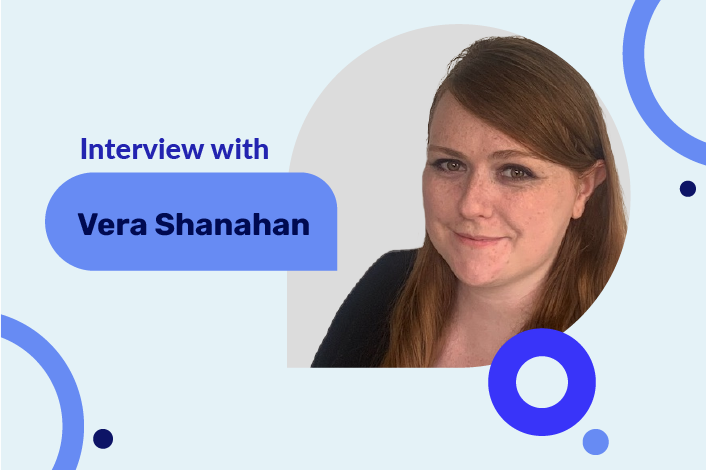
Our Inclusive and Special Education programme was developed jointly by Hibernia College and the Institute of Child Education and Psychology (ICEP) Europe. The programme is offered on a modular, part-time basis for maximum flexibility, with the option to complete either an MA or a PG Dip (Arts) in Inclusive and Special Education. Since launching last autumn, we’ve welcomed two cohorts into the programme. Participants consist of educators working with learners with special and additional learning needs in diverse educational settings.
We are happy to introduce you to one of our students, Vera Shanahan, who also works as the Primary Education Officer at Educate Together. She was kind enough to share her experience on the programme thus far. Read on for Vera’s perspective of the MA/PG Dip (Arts) in Inclusive and Special Education (MAISE).
Tell us a bit about your background in education and special education specifically.
I graduated from St Patrick’s College DCU and have worked as a mainstream and SET teacher for over 10 years. I completed a Master’s in Positive Behaviour Management with Trinity College in 2020 and am currently on secondment with Educate Together. While in the classroom, I worked extensively with children with additional needs and decided to pursue a specific qualification in inclusive education to gain a better understanding of both the theory and best practice in this field.
Why did you choose to study this programme with ICEP and Hibernia College?
Although not a graduate, I was aware of the flexibility and quality of professional development provided by Hibernia College. Other graduate programmes require time off and can impact on the school and are also often exclusive to teachers currently working in SET. This programme appealed to me as it was online and would not require time off and was affordable.
What is your experience of the course so far?
I have had a very positive experience so far. The course content is relevant and accessible, and a great balance between investigating the theory and exploring practical applications is struck. The staff and tutors are very knowledgeable in their field and have been very helpful.
How have you found online learning, for example, the virtual learning environment (VLE) MyHELMS and online support, such as the Cohort app?
The VLE is easy to use and very clear. Exceptional support is provided by the library. One thing that really appealed to me is that the reading list is hyperlinked and brings you straight to the relevant text. This is a huge timesaver! The Cohort app provides a space for students to raise questions and support one another, creating a sense of community.
Do you find the mix of participants on the programme beneficial, if so, and why?
It is very beneficial to learn what is happening in other sectors, for example in early years and post-primary. This enables us to gain a broader perspective on inclusive practices and education in general.
What aspects do you like most about the programme?
The flexibility afforded is a huge benefit of the programme. Content is presented in both synchronous and asynchronous formats, which is appealing as you can engage with it mostly at your own pace. Lectures are recorded, and while I would recommend students attend them, it does mean that your life doesn’t have to be put on pause. I had a busy period at work and was able to disengage from the programme, only to pick it up again and catch up without feeling like I had missed out.
Can you share some advice for someone considering the programme?
Set aside specific times for study. I found studying after work beneficial as I was able to take a break at the weekend although this may not work for everyone. Look at assignment deadlines and work backwards, setting targets for each week. Rome was not built in a day!